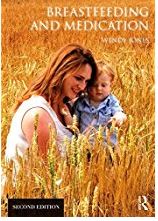Just recently I have been contacted by several mothers who were told that they cant breastfeeding during the 24 hour period of bowel prep prior to a colonoscopy or for 24 hours following the procedure under sedation. This is not supported by research and understanding of the pharmacokinetics of the drugs used. It is also a potential risk in that the mother may develop blocked ducts or mastitis necessitating antibiotics if she is unable to express her milk, or in many cases hasn’t been advised to! Not all babies will drink from a bottle so may become dehydrated. Some babies are allergic to cow’s milk protein and may be compromised by 3 days of artificial formula. Hence this fact sheet on the bowel preparations generally used.
It is acceptable to breastfeed as normal during bowel prep. The mother should drink freely of the allowed clear fluids. Someone may be needed to look after the baby during rapid need to evacuate bowels – unless you have taken these products you cant begin to understand the urgency!
PDF of information available
https://breastfeeding-and-medication.co.uk/wp-content/uploads/2023/08/Moviprep-and-breastfeeding-1.pdf
An increasing number of breastfeeding mothers are having colonoscopies to investigate gut problems. The first stage of a colonoscopy is the use of a strong laxative and 24 hours of a fluid only diet to clear out the gut so that the professionals can see the gut in its entirety completely.
Many mothers worry that not eating for 24 hours will reduce their milk supply. Fasting does drop the supply a small amount for some women but frequent feeds seem to overcome problems. It is important to keep drinking the clear fluids which are allowed in order not to dehydrate.
From experience you may find that you need someone else in the house to take the baby urgently when you have to rush to the toilet – there is no waiting! You may find otherwise that you end up feeding whilst on the loo for practical reasons. The bowel washouts produce considerable urgency
Movicol®
One of the most commonly used laxative agents to clear the gut is Movicol ® otherwise known as polyethylene glycol- electrolyte solution. It is a saline laxative which is not absorbed from the gut but pulls water into the bowel to wash the contents out. Because it is not absorbed from the gut it cannot get into breastmilk and would not affect the baby. The movicol website says that it can be used during pregnancy and breastfeeding. https://www.movicol.co.uk/
MoviPrep®
This dual sachet product contains macrogol and electrolytes in 2 different sachets, Because it is not absorbed from the gut it cannot get into breastmilk and would not affect the baby.
Plenvu ®
This powder contains macrogol and electrolytes in sachets, Because it is not absorbed from the gut it cannot get into breastmilk and would not affect the baby.
Picolax®
Sodium picosulfate is not absorbed from the gastrointestinal tract, and its active metabolite, which is absorbed, is not detectable in breastmilk. Breastfeeding can continue as normal.
KleanPrep ®
KleanPrep contains macrogol 3350 , an osmotic laxative with a high molecular weigh and zero oral bioavailabilty. Like Moviprep it accumulates water into the GI tract, where it acts as a laxative. It would be very unlikely to enter the plasma of the mother, or milk.
Citramag®
The ingredients magnesium carbonate and citric acid will form an osmotic laxative by pulling water into the bowel and stimulating the bowel to evacuate. Poor oral absorption of magnesium make it unlikely that any will be absorbed from milk to affect the breastfed baby.
Senna
Senna is a stimulant laxative. Its key ingredient (anthraquinone), is believed to increase bowel activity due to secretion into the colon. It may produce abdominal cramps. In one study of 23 women who received Senokot none was detectable in their milk.[1] Of 15 mothers reporting loose stools, two infants had loose stools (Werthmann 1973). However, in a randomized, double-blind trial comparing Senokot tablets to placebo, of the women in the study, 126 breastfed their infants and took senna while 155 control mothers breastfed their infants. There was no difference in the percentages of infants in the active and control groups with loose stools or diarrhoea (Shelton 1980). In this study 8 doses were taken. In bowel preparation a single dose only is used.
Werthmann MW Jr, Krees SV. Quantitative excretion of Senokot in human breast milk. Med Ann Dist Columbia. 1973;42:4-5.
Shelton MG. Standardized senna in the management of constipation in the puerperium. A clinical trial. S Afr Med J. 1980;57:78-80.
Phosphate enema (Fleet®)
Sodium phosphate is a saline laxative which sucks water into the lumen of the bowel. Whilst some phosphate may get into the plasma, it is very unlikely to change the levels in milk. The oral bioavailabilty is zero to 20%. Use of phosphate enemas should not require interruption of breastfeeding (LactMed)
Bisacodyl (Dulcolax ®)
Bisacodyl is poorly absorbed from the gut (oral bioavailabilty <5%) and so reaches low levels in breastmilk. It is a stimulant laxative. Breastfeeding can continue as normal
For information on sedatives (midazolam, fentanyl, pethidine) used in colonoscopies see separate fact sheet . These also do not preclude normal breastfeeding as soon as the mother is awake and alert.
